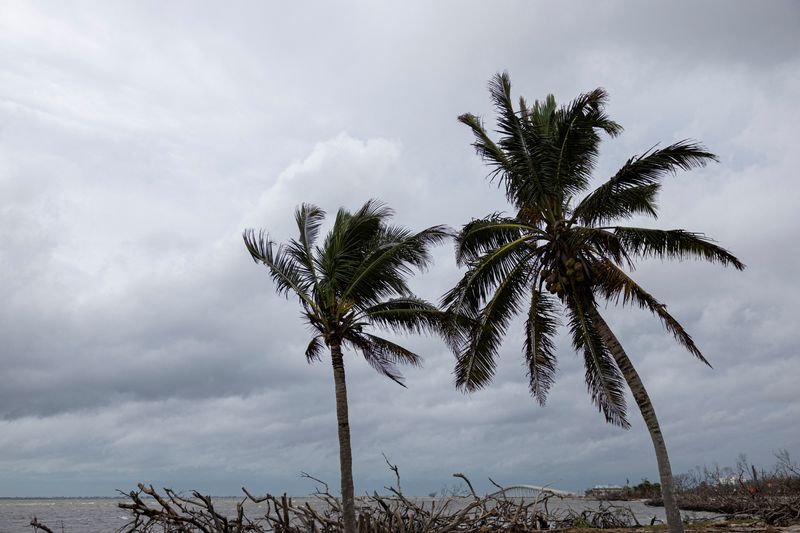In recent times, U.S. officials have faced an uphill battle in addressing the surge of misinformation surrounding natural disasters, especially amidst the havoc wrought by hurricanes. The situation has seen notable congressional Republicans, including Representative Chuck Edwards from North Carolina, become increasingly vocal against the unfounded conspiracy theories proliferating within their party. Edwards, whose district experienced severe flooding due to Hurricane Helene, took a stand against the “outrageous rumors” propagated by “untrustworthy sources” aiming to create chaos. This flooding was particularly devastating for North Carolina’s inland areas, which have historically not been accustomed to such disasters, linking the issue to the larger conversation about misinformation during natural calamities.
As Florida prepares for the imminent threat of Hurricane Milton, the atmosphere of confusion and conspiracy only intensifies. Representative Marjorie Taylor Greene from Georgia has emerged as a prominent figure in this misinformation landscape, utilizing both her official and personal social media platforms to peddle dubious claims regarding weather manipulation by the government. In a recent tweet, Greene insinuated that the government is controlling the weather and questioned whether citizens were aware or consenting to such actions, further sowing discord. Edwards responded to these fallacies without directly naming Greene, emphasizing the need for discerning the truth from credible sources, thereby underscoring the significance of responsible communication during these critical times.
Further condemning the harmful narratives, Representative Carlos Gimenez from Florida categorized such conspiracy theories as unfounded, explicitly stating that humans cannot create or control hurricanes. His clear rebuttal highlights a growing concern among responsible lawmakers who recognize the detrimental impacts of spreading such misinformation, especially when communities already face substantial threats. The rising intensity of these conspiratorial messages complicates the public’s understanding of the real dangers posed by natural disasters, and it is imperative for leaders to steer the conversation toward factual information rather than sensational rhetoric.
Senator Thom Tillis, also a Republican from North Carolina, echoed similar sentiments regarding the necessity to halt distractions stemming from misinformation. Tillis highlighted that much of the commentary about the disasters was not grounded in the reality experienced by those on the ground, suggesting a disconnect between social media narratives and actual occurrences. This reiteration from a party member speaks to a broader concern among some Republicans about the potential fallout of promoting unfounded theories, particularly in the context of disasters that affect constituents directly.
At a recent briefing, President Joe Biden added fuel to this discourse by calling out former President Donald Trump for instigating an “onslaught of lies” and labeled Greene’s rhetoric as “bizarre” and “ridiculous.” Biden urged all lawmakers to recognize the gravity of the situation, creating a unified front in responding to natural disasters rather than allowing political affiliations to divide them. Stressing that these incidents impact all citizens, regardless of party allegiance, the President’s statement seeks to promote a cohesive effort in tackling misinformation during times of crisis.
The current landscape represents a critical juncture in the conversation about climate disasters, the role of misinformation, and the responsibilities of public officials. As representatives like Edwards, Gimenez, and Tillis stand firm against baseless claims, there is hope that the focus can shift toward collaboration and reliable communication. In an age where social media can rapidly amplify falsehoods, it becomes increasingly vital for both political and civic leaders to prioritize truthful discourse, ensuring that communities receive accurate information when facing the harsh realities of natural disasters and the aftermath they entail.

